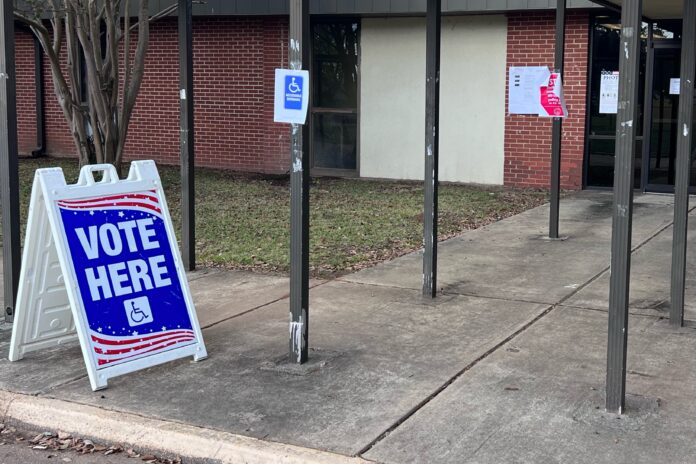Welcome to the state of apathy. When the low-interest Louisiana primary election resulted in Jeff Landry being elected governor outright without needing a runoff, analysts expected even lower interest in the general election with no gubernatorial candidates at the top of the ballot. The primary election turnout was 36 percent, and according to the Secretary of State’s election results website, the general election turnout was 22.5.
While turnout was lower than average regardless of party, it was acutely low in Democratic precincts in the general election. As a result, Republican candidates swept the remaining undecided statewide offices. Republican Nancy Landry received 67% of the vote in the secretary of state race against Democrat Gwen Collins-Greenup at 33%. Republican Liz Murrill received 66% of the vote in the attorney general race against Democrat Lindsey Cheek with 34%, and Republican John Fleming received 65% of the vote, winning the race for treasurer against Democrat Dustin Granger, who had 35% of the vote. All statewide offices in Louisiana are now held by Republicans.
Voter turnout in New Orleans was about 15 percent. New Orleans is a Democratic bastion, with about 63% of voters registered as Democrats, about 10% as Republicans, and about 27% independent. Without a high turnout in New Orleans, Democratic candidates cannot be competitive in statewide elections. Voter apathy took hold even though there was a competitive race for an open state House seat in the city. In House District 23, Shaun Mena captured 58% of the vote and won the seat over Tammy Savoie, who had 42%.
Since both of these candidates are New Orleans Democrats, this race will not change the composition of the Louisiana Legislature. After the general election, the Louisiana Senate will have 28 Republicans and 11 Democrats. The Louisiana House will have 73 Republicans and 32 Democrats. The Republicans will hold supermajorities in each chamber. With a Republican governor and legislative supermajorities, the state Republican Party is in its strongest position since Reconstruction.
Other elections in Orleans Parish included four proposed constitutional amendments. Amendment 1 would allow the legislature to take up a veto override without having to end the regular session first. Amendment 2 would repeal six inactive fund accounts and add them to the state general fund. Amendment 3 would authorize local governments to give property tax exemptions to first responders. All three of these amendments passed. One amendment failed. Amendment 4 would have put certain spending limits on the Revenue Stabilization Trust Fund, which is an account designed to be available to alleviate a deficit. However, lack of understanding of the complex language, and opposition from some government groups who argued the legislature should not limit spending power in case of an emergency doomed the measure, and it failed.
Missing from some of the Louisiana election analysis is that apathy is not only a problem for Democrats. Turnout also was much lower than average in Republican precincts, just not as low as in Democratic precincts. Three-quarters of the electorate chose not to participate, regardless of party. However, low turnout hurts Democrats more than Republicans because Democrats are at a structural disadvantage in a red state such as Louisiana.
Voter registration numbers don’t tell the tale because many Southern Democrats are conservative and often vote Republican. A more accurate measure of a state’s voting tendencies is to look at high-turnout presidential elections. Donald Trump carried Louisiana twice with 58 percent of the vote. Louisiana is definitely a red state. For Democrats to be competitive, their turnout needs to be disproportionately higher than Republicans.
As this column has mentioned previously, there are specific steps that the Louisiana Democratic Party can take to become relevant again. These steps include raising money, differentiating itself on specific policy issues such as choice on abortion, and targeting voters.
However, the current apathy crisis affecting Louisiana voters is larger than any one political party. Louisiana voters of both parties, as well as independents, have become cynical, because many don’t see their lives improving regardless of who is in office. Elected leaders will need to start delivering real, substantial changes after they receive votes, otherwise those voters will lose hope and not come back. A voteless people is a hopeless people.
Source: Verite News; Author: Robert Collins







